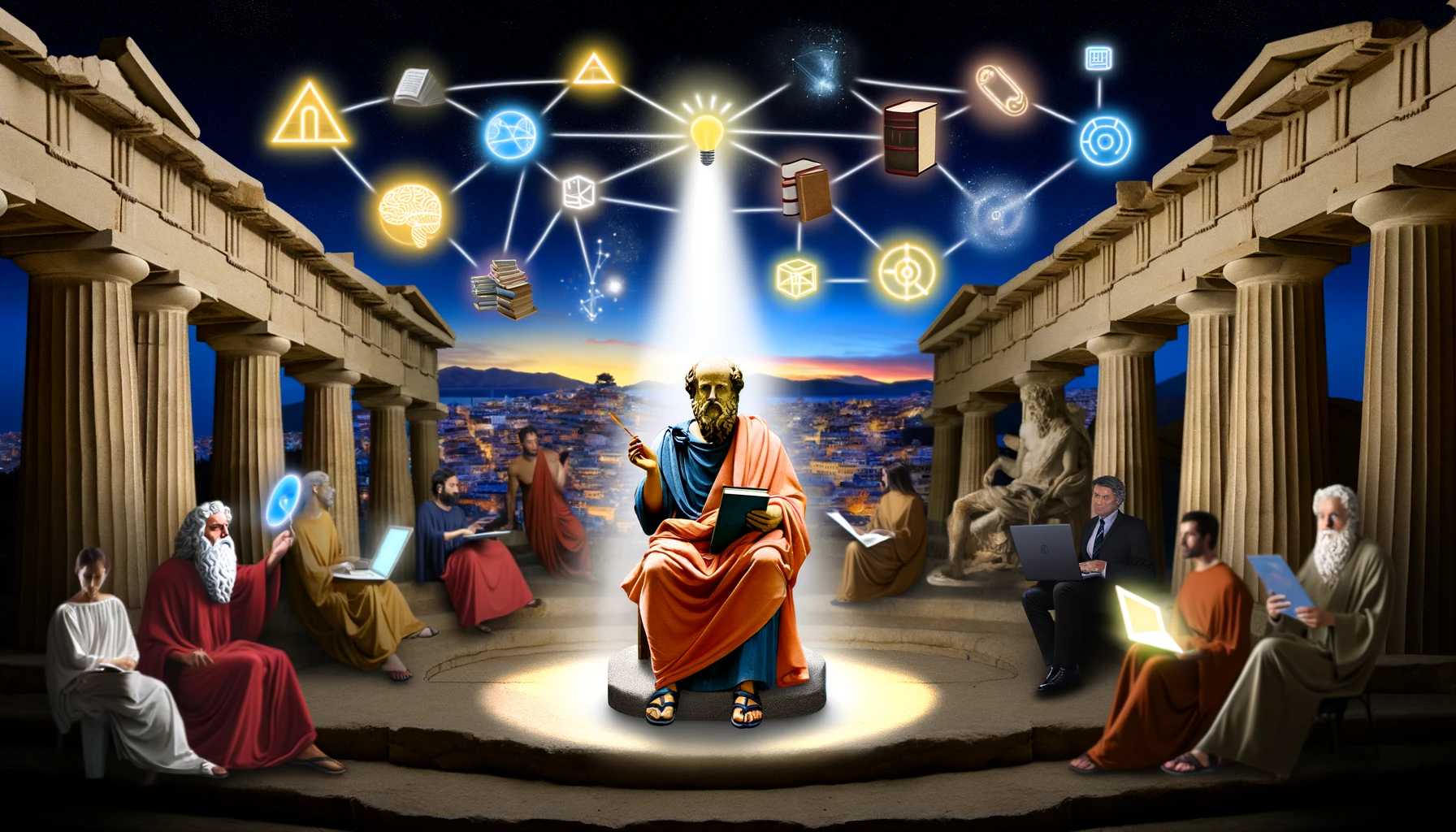THE IMPACT OF PLATO ON MODERN THOUGHT
Plato was an ancient Greek philosopher born in Athens during the Classical period. He is a student of Socrates, teacher to Aristotle, and the founder of the Academy, best known as the author of philosophical works of unparalleled influence. He played a major role on Classical antiquity.
Plato one of the most influential philosopher of all time, and his ideas have had a profound impact on modern thoughts.
PLATO THEORY OF FORMS
This theory states that there are two realms: the realm of the physical world and the realm of the forms.
The physical realms is a world of constantly changing things. Plato believed that this world is constantly changing and that nothing in it is truly real. Everything in the physical world is a copy of the true, eternal forms in the realm of the forms. For instance, all physical objects that we perceive as ‘tables’ are merely imperfect copies of the true form of a table.
The realm of the forms, is a realm of unchanging, eternal things, Plato believed that this realm is where the true form of everything exist. These forms are perfect, unchanging, and eternal. They are the essence of things, and all physical objects are mere shadows of these forms
Plato’s theories have been debated and analyzed by philosophers for centuries. He was one of the first philosophers to really dig deep into nature of reality and perception. One of the most famous examples of Plato’s ideas is his allegory, Plato asks us to imagine people who lives in a cave, with their backs to the entrance. All they can see are shadows cast on the wall in front of them.
The theory of Allegory
The allegory continues with one person escaping the cave and experiencing the outside world. This person sees the sun, the star, and the world around them. Then they realize that the shadows they saw in the cave are only imperfect copies of the real world. Upon returning to the cave, this person tries telling it to the other, however, the others refuse to believe them and continue to focus on the shadows.
Plato believed that most people were still living in the ‘cave’ of ignorance, unaware of the true forms of the world. He believed that only through education and philosophy could people escape the cave and experience the true reality. He thought that the perfect forms of things, like, justice and beauty, could only be understood through reason and thought.
HOW PLATO INFLUENCE MODERN THOUGHT
Plato influence on modern thought is widespread and profound. One of his most enduring ideas is the concept of dualism, which is the idea that the mind and body are two separate entities. This idea has had a huge impact on philosophy, psychology, and neuroscience. Another lasting influence is the theory of knowledge, which suggest that true knowledge coms from inmate ideas that are already present in mind. Most western belief in the dichotomy between spirit and matter can be traced back to Plato’s thought. Neo-Platonic philosophy was revived during the Renaissance, and modern thinkers such as Kant and Hagel were clearly inspired by Plato’s legacy.
Plato’s Philosophy on Education
Plato’s believed that education should focus on developing the mind, not just imparting knowledge. He also believed that students should be taught using Socratic dialogue, a method of teaching that involves asking questions and encouraging students to think critically.
Plato’s regard education as a means to achieve justice, both individual justices and social justice. He states that, individual justice can be obtained when each individuals develop their ability to the fullest.
In Plato’s ideal state, education was a crucial part of the social order. He believed that it was the responsibility of the state to provide education for all citizens. He even believed that students should be educated according to their natural talents and abilities. This was a revolutionary idea at that time, and it influenced the way we think about education today.
Socratic dialogue is a powerful tool for teaching and learning, and it’s something that is still used in many classrooms today. Plato also had some interesting ideas about art and beauty. He believed that art should aim to represent the perfect forms, not just imitate the physical world. This led him to criticize some forms of art, like realistic painting, as being too focused on the physical world.
Plato’s ideas about education are still relevant in the modern world, his ideas about education have had a lasting impact. In fact, some of his ideas have been adapted into modern educational theories, like differentiated instruction and individualized learning.
Individualized learning: Is a method of teaching that is tailored to the needs of each students. It’s based on the idea that everyone learns differently, including our strengths and weaknesses. This approach is a great example of how Plato’s idea about education are still relevant today.
Differentiated instruction: Is a method of teaching that is similar to individualized learning. The main difference is that it focused on providing different instruction for different groups of students, rather that individuals. This approach recognizes that students learn differently and it provide multiple ways to access the same materials. This include things like different reading materials, hands-on activities and group projects.









